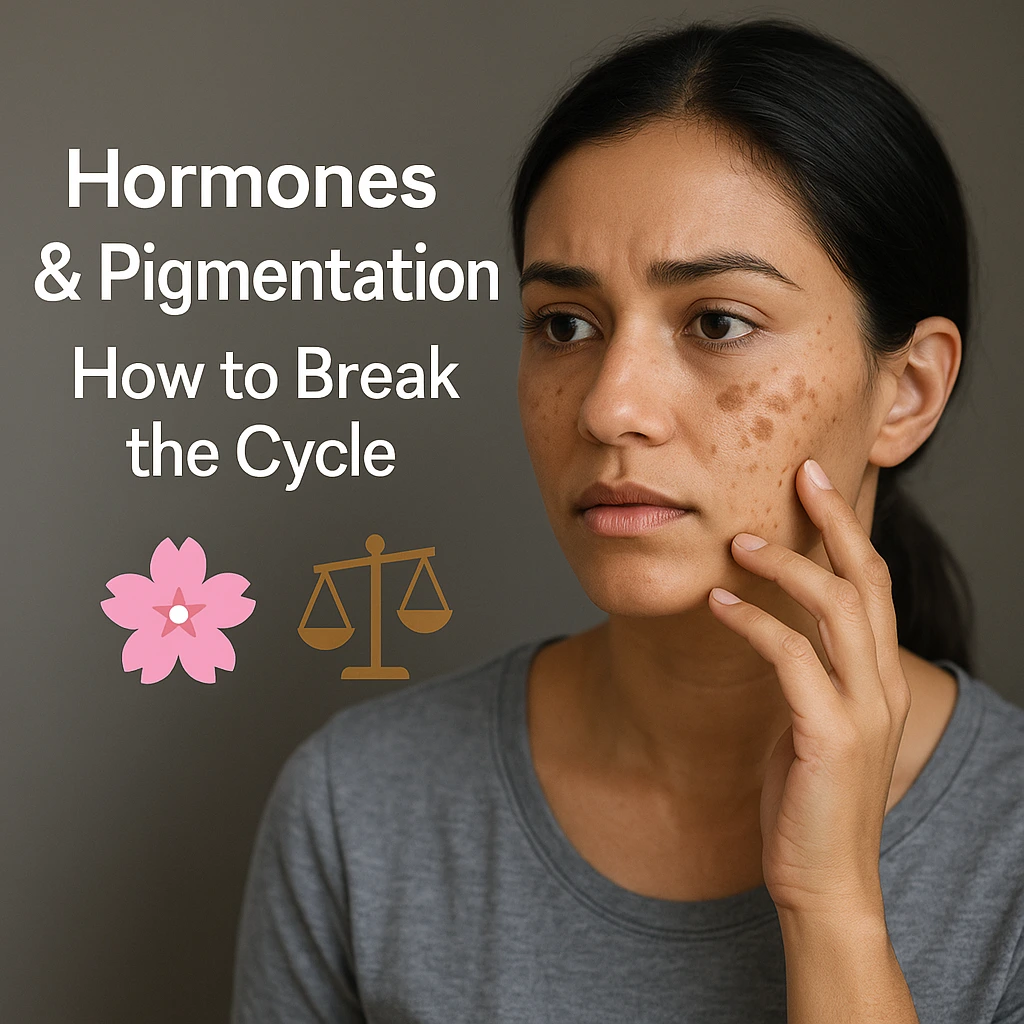Hormones & Pigmentation: How to Break the Cycle
Hormones play a major role in pigmentation issues like melasma and stubborn dark spots. Understanding this connection helps you adjust your skincare and lifestyle for better control and long-lasting results.
How hormones trigger pigmentation
Hormones can stimulate excess melanin production, especially during pregnancy, when using certain birth control pills, or through monthly cycle fluctuations. This overproduction leads to dark patches that can appear suddenly and be difficult to fade. Melasma is one of the most common examples of hormonally driven pigmentation.
Recognizing your skin’s hormonal patterns
Keep track of when your dark spots become more noticeable. Many people see changes around their menstrual cycle, during stressful periods, or in pregnancy. Knowing your personal patterns can help you prepare and adjust treatments in advance to minimize flare-ups.
Adjusting your skincare during hormonal shifts
When you know your skin is more reactive, focus on gentle, soothing products. Avoid harsh exfoliants or aggressive treatments during these sensitive times. Use calming serums with ingredients like niacinamide and include LED sessions focused on reducing inflammation and supporting the skin barrier.
Supporting your skin from within
A healthy diet, stable sleep schedule, and stress management all help balance hormone levels naturally. Including antioxidant-rich foods and staying hydrated support the skin’s repair processes. In some cases, consulting a doctor to discuss hormonal support options may also help manage stubborn pigmentation.
Conclusion
Breaking the cycle of hormonal pigmentation takes awareness, patience, and consistent care. By learning how your body affects your skin, you can adapt your routine and keep your complexion more even and healthy over time.

